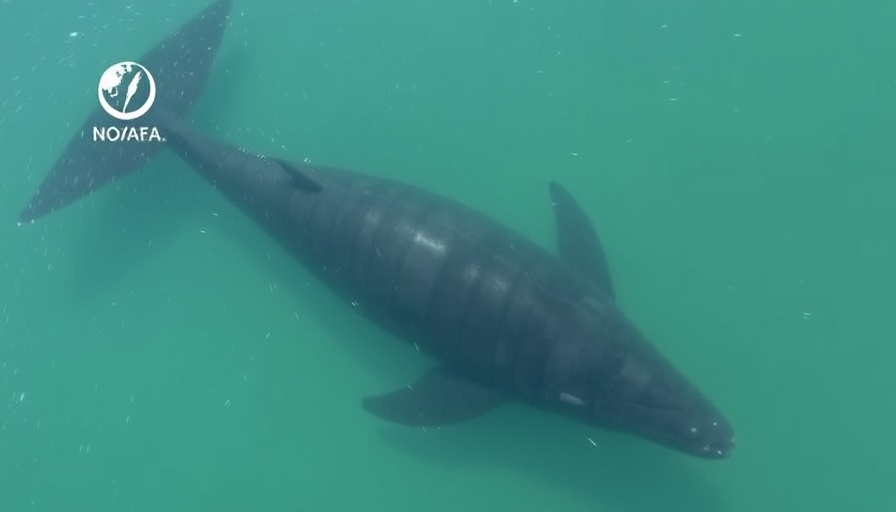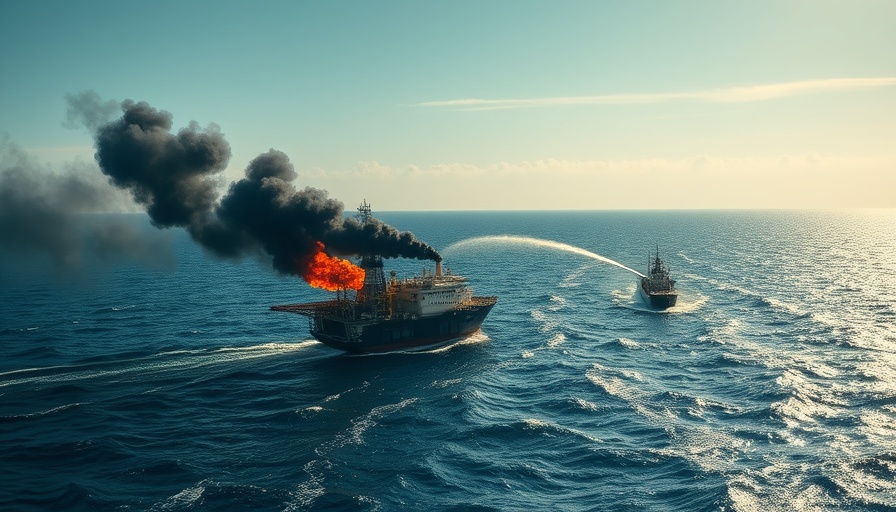
Gulf Oil Activity Poses Dire Threat to Rice's Whale
The Gulf of Mexico is not only a vital resource for the oil and gas industry but also home to several endangered species. Among them is the Rice's whale, a critically endangered marine mammal with an estimated population of only a few dozen individuals in the region. A recent report from NOAA Fisheries has highlighted that ongoing oil and gas activities could soon push this species to the brink of extinction without immediate regulatory action.
An Urgent Call for Precautionary Measures
NOAA's revised biological opinion, released on May 20, outlines the potential impacts of industrial activities on Rice's whales. It replaces an earlier analysis that was deemed inadequate by a federal court due to violations of the Endangered Species Act. The latest document, spanning 677 pages, underscores the urgent need for precautionary measures to mitigate dangers, primarily from vessel strikes.
Why Are Rice's Whales in Danger?
Rice's whales are uniquely adapted to the Gulf's habitat, but their small population makes them particularly vulnerable to threats posed by human activities. The noise and disturbance from oil exploration and drilling operations not only disrupt their natural behavior but also increase the risk of deadly encounters with boats. NOAA proposes measures aimed at reducing these incidents, such as specific vessel routing and speed restrictions, arguing that these adjustments could make lethal strikes "extremely unlikely to occur." Without such protections, experts warn that the species faces an uncertain future.
Broader Environmental Implications
The plight of the Rice's whale mirrors the broader environmental challenges arising from the oil and gas sector. Critics point to the pattern of environmental degradation and species extinction linked to industrial activities, calling for a reevaluation of priorities in light of climate change. As the Gulf continues to be a battleground between conservation efforts and industry interests, the decisions made now will resonate for generations.
Public Engagement and Support
For wildlife advocates and concerned citizens, awareness is the first step toward advocacy. Local communities and environmental organizations are rallying to support protections for Rice's whales, emphasizing the need for sustainable practices that ensure the coexistence of industry and wildlife in the Gulf. Educational campaigns highlight the unique qualities of Rice's whales and the ecological importance of keeping them in the waters where they belong.
Looking Ahead: The Future of Rice's Whale
The future of Rice's whale hangs in the balance, dependent on regulatory measures and public commitment to preservation. As stakeholders weigh economic benefits against ecological costs, the collective responsibility to protect vulnerable species becomes increasingly apparent. Continued monitoring of oil activities, combined with robust policy changes, will be crucial in determining whether we can save Rice's whale from extinction—or if we will witness yet another loss in the tapestry of our natural world.
 Add Row
Add Row  Add
Add 




 Add Row
Add Row  Add
Add 

Write A Comment